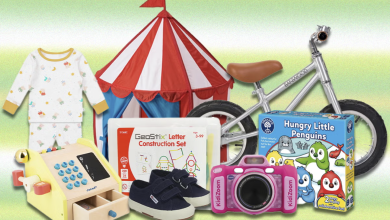Navigating Daily Challenges: Four Common Stressors and Solutions for New Parents

Babies bring a whirlwind of emotions and experiences into our lives, filling our homes with laughter, cuddles, and the occasional surprise spit-up. For new parents, the journey is often overwhelming, especially in the early days and nights when life seems even busier.
Addressing Common New Parent Stressors
#1: Ensuring Adequate Sleep Many parents struggle with their baby’s sleep, dealing with issues like day-night confusion and sleep regressions every few months. Good sleep hygiene, tailored to your baby’s developmental stage, is crucial. According to a 2024 Pediatric Research study, adequate sleep is linked to brain development, particularly in preterm infants. Establishing a routine early on can help, involving simple steps like feeding, changing, and unwinding before naps. Reducing overstimulation by darkening the room and maintaining quiet, and possibly using a white noise machine, can also be beneficial. If sleep issues persist, consider consulting a pediatrician to check for underlying issues like constipation or gas. If the nights get too overwhelming, don’t hesitate to seek help, possibly by hiring a night nanny.
#2: Nutrition and Feeding Feeding can become a major stressor, from the early days of constant milk preparation to introducing solids around 5-6 months. While some parents opt for homemade baby food, others might choose store-bought options for the guaranteed nutrient balance and convenience, especially if they’re balancing work. Despite concerns about food safety, with reports of harmful metals in some brands, there are safeguards like the 2021 Baby Food Safety Act that mandates testing for heavy metals and public result disclosure. It’s important not to stigmatize store-bought options; as research suggests, even homemade foods can contain toxins from soil and water. Diversifying your baby’s diet to include less contaminated foods like bananas and hard-boiled eggs and limiting higher-risk items like rice snacks can help reduce exposure.
#3: Fostering Development The pressure to ensure optimal development can be intense. Yet, simple interactions are often the best way to support your baby’s growth. Engaging with them on the floor, letting them explore books and toys, and incorporating music can significantly benefit their emotional and cognitive development. High-contrast books might help focus, while everyday household items can be used for activities like stacking and sorting. Music, in particular, can aid in emotional expression and social skills, enriching your baby’s development through simple daily activities.
#4: Monitoring Health through Diapers Tracking your baby’s diaper output is crucial but not glamorous. Insufficient wet diapers might indicate dehydration, requiring quick medical advice. Similarly, while changes in stool color and consistency are normal as diets expand, symptoms like bloody or mucous-filled stools need immediate attention. Simple home remedies like the bicycling exercise can alleviate constipation, with dietary adjustments like adding peas and prunes recommended by doctors.
Conclusion Parenting is undoubtedly challenging, but the rewards grow as your child does. From managing sleep to navigating feeding and development, each phase requires patience and adaptability. You’re not alone in this journey, and it’s perfectly normal to seek help and use available resources. The key is to stay informed, flexible, and supportive, ensuring you and your baby thrive together.



